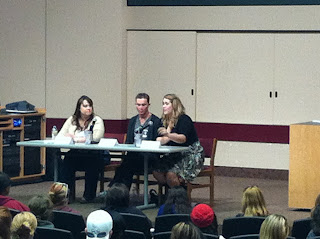Download The True Story of the Internet: People Power shows how Youtube, Digg and other companies came up with ideas and websites that have almost replaced traditional media. Napster paved the way as well as programs like Winamp for music lovers and it really gave people more options on how their get music.
I did not realize how fast the record stores were cleared out by Napster when it first began and when the lawyers took it to Dr Dre and then Metallica caught wind of it. Lars Ulrich went to confront them at Napster headquarters and I did not know the crowd was so harsh on them by breaking Metallica CD's. This definitely changed Metallica's (warning: link is explicit with language but funny) image during that time and it proved they were just in it for their own greedy reasons, not the actual thrill of making popular music.
These pioneers of the internet risked a lot and put a lot out on the line when they decided to start these companies, but they did not realize this because most of it was just ideas that stumbled into a big company. I did not know Google was so influential in keeping Youtube around, but I guess it makes sense because they have great funding that they are able to give Youtube. Television and entertainment companies are so afraid of Youtube because people obviously want to watch what they want, which is not always what these companies can offer.


































